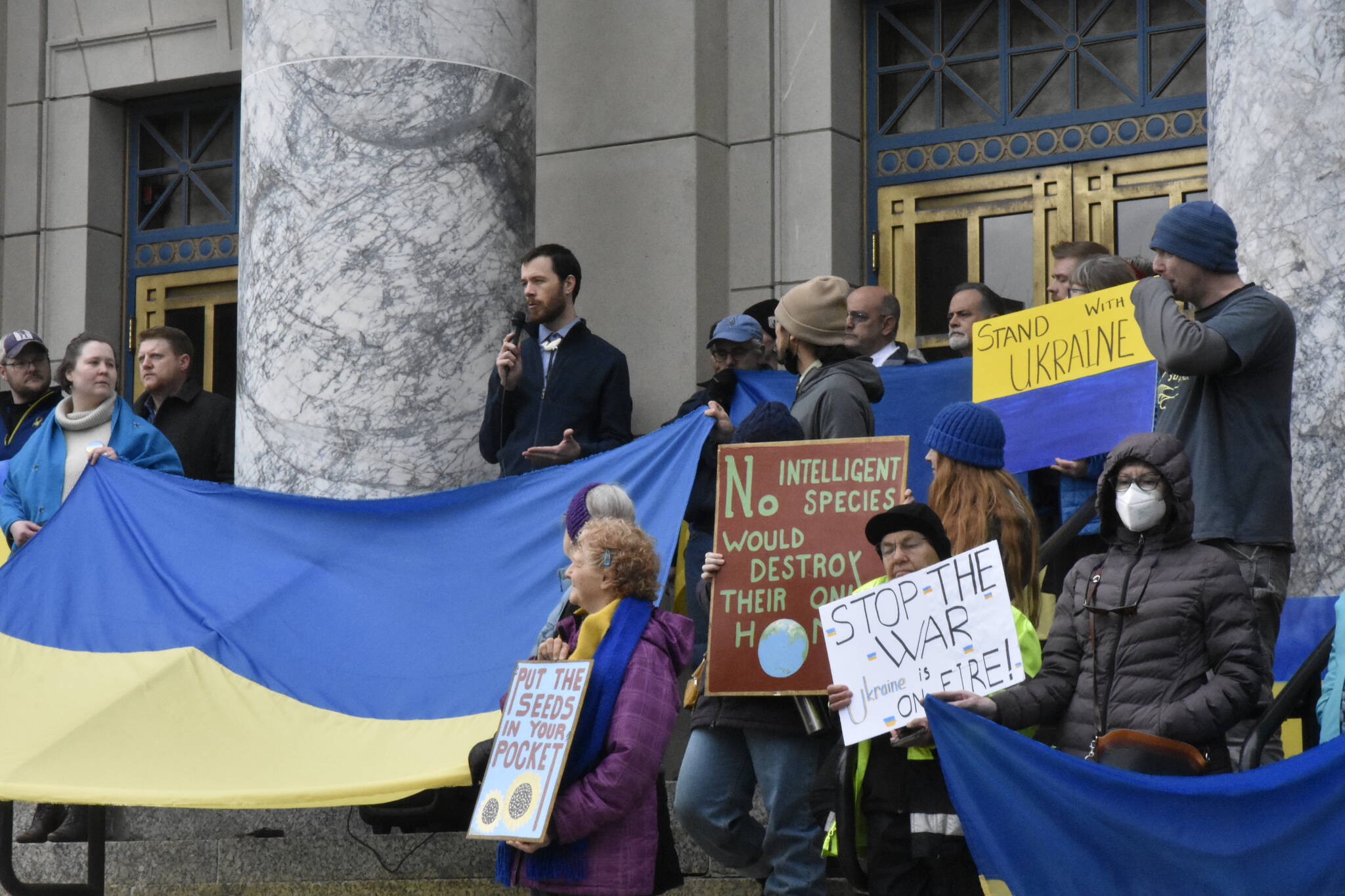By James Brooks
The Alaska Legislature adjourned last month without passing legislation that would have required the state, including the Alaska Permanent Fund, to sell its Russia holdings.
Many states have ordered their pension funds and other investment accounts to be divested from Russian holdings to protest that nation’s invasion of Ukraine.
At the time of the invasion, Alaska held more than $200 million in Russia-related investments within the Permanent Fund, pension funds and other investment accounts.
The value of those investments has plunged, and trading in Russia-related investments has been mostly suspended, making it difficult to sell them.
“Russian equity markets remain closed to both buying and selling of equity investments, so the department’s ability to take additional action is limited and circumstances continue to be fluid,” said Genevieve Wojtusik, an official at the Alaska Department of Revenue who answered questions on behalf of the agency.
Many state investments are in index funds that contain Russian firms, the department said in a statement.
“At this point, staff has directed a halt to any additional purchase of Russian securities due to the highly uncertain market environment. With respect to existing holdings, when markets open DOR staff plans to work with investment managers to evaluate the valuations, risk, and other market conditions that prevail at that time before taking additional action,” according to the department statement.
The $78.9 billion Permanent Fund holds the bulk of Alaska’s Russia-related investments.
As of April 29, the corporation reported holding $63.4 million in Russian securities.
The report cautioned that the figure is “speculative, given inconsistent market pricing, the inability for foreigners to transact Russian securities and illiquidity due to applicable regulatory sanctions.”
It went on to state that fund managers handling Russian bonds are “actively reducing their Russian positions.”
The Permanent Fund has never sold assets for political reasons, and corporation officials have said that they do not believe they have the legal basis to do so unless the Legislature approves a law allowing them to sell.
Thirteen years ago, legislators and then-Gov. Sarah Palin asked the Permanent Fund to divest from companies operating in Sudan. They proposed legislation, but when that bill failed to pass, the corporation kept its Sudan-linked investments.
In 2012, then-Gov. Sean Parnell asked the Permanent Fund to voluntarily divest from investments in Iran. The corporation did not do so.
More recently, the corporation has been asked by environmentally concerned Alaskans to divest from companies that invest in fossil fuels.
Rep. David Eastman, R-Wasilla, introduced legislation to forbid the corporation and the state at large from investing in firms that advocate divestment from Alaska. Gov. Mike Dunleavy, as part of a Russia-related divestment program, included a similar provision.
None of those bills passed the Legislature.
Without legislative guidance, investment officials at the Alaska Permanent Fund Corp. are bound only by the “prudent investor rule,” which allows fund managers to use their “judgment and care” when picking investments.
A growing number of investment firms have adopted so-called “environmental, social and governance” policies that place further limits on investments. Some ESG policies block investments that, while profitable, may support genocide, war or environmental destruction.
The Permanent Fund Corp. does not have an ESG policy.
• James Brooks is a longtime Alaska reporter, having previously worked at the Anchorage Daily News, Juneau Empire, Kodiak Mirror and Fairbanks Daily News-Miner. This article originally appeared online at alaskabeacon.com. Alaska Beacon, an affiliate of States Newsroom, is an independent, nonpartisan news organization focused on connecting Alaskans to their state government.

